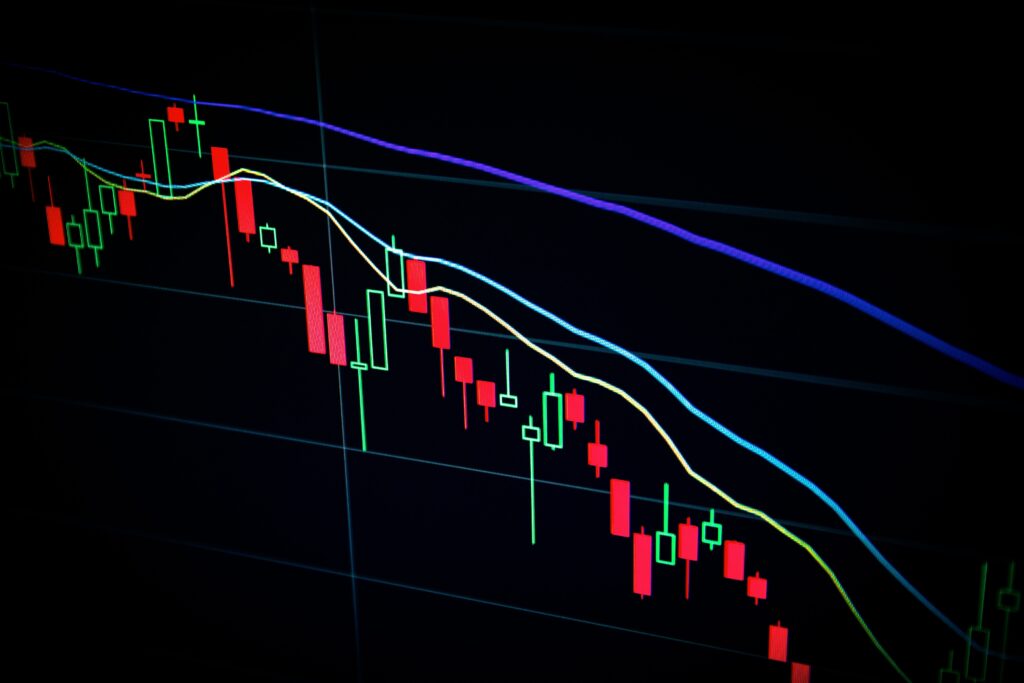Six expert tips for forex trading in a volatile currency market
In recent months, the currency market has gone through countless cycles of crashes and rallies. While some traders have used the price movements to make decent profits, others have lost a significant amount of their trading capital. Six expert tips for forex trading in a volatile currency market.
In this article, we will share six tips that can help you trade the forex market during volatile times and take advantage of the swings as a smart trader.
Let’s dive in.
1) Define your risk profile
The first thing to do when the market is as volatile as it is today is to understand your risk appetite. While high volatility provides huge profit opportunities, it can also drain your account. So it is important to find out what level of risk you want.
If you are inexperienced or experienced but risk-averse, you can reduce your risk by taking smaller positions and using little or no leverage. In this way, you will make small profits when the market moves in your favor and, of course, minimal losses when it does not.
On the other hand, you can get massive returns when your positions are correct. There is no right or wrong way to do this; it all depends on your risk appetite.
2) Plan according to the times
Once you have set your risk limit, the next step is to create a strategy that will follow current market conditions. You may have read dozens of texts telling you to stick to a trading plan, but such methods rarely work in volatile markets.
In times like these, your strategy may not be to hold a long position and wait for the market to normalize. Instead, you may want to focus on opening short positions to take advantage of the swings.
Remember: a long position refers to buying an asset with the expectation that it will rise in value, while a short position represents the opposite – taking advantage of a fall in the price of the asset.
A good starting point would be to understand the market conditions, know the circumstances that are moving it, set a target and take everything into account in your plan.
3) Focus on trading major currency pairs
There are many currency pairs that are suitable for currency trading, but in times like this it is better to stick to large currency pairs, known as majors.
This tip is particularly important for novice traders because of the following reasons.
A) Major pairs such as USD/EUR, USD/JPY, USD/GBP have high liquidity, even when the market is volatile. Thus, opening and closing positions will not be a problem as there will always be demand and supply for the currencies you are trading.
B) Apart from the high level of liquidity of these pairs, during a crisis, the media, economists and currency experts focus on analyzing events in major economies and stock exchanges. Therefore, you will always have enough information to make smart trading decisions.
4) Focus on derivatives
During periods of high volatility, it may be a good idea to trade derivatives for the reasons below.
A) Trading forex as a derivative means that you will not have to buy the underlying currencies. You just need to predict how the market will move and make money if your prediction is correct.
B) When trading derivatives, your risk is often limited to your share. This means that if the market goes against your prediction, you will only lose the amount you bet. This is not true in all cases, but on platforms like Skilling, you can trade forex as a derivative while limiting your risk to your share.
C) Derivatives allow you to take short positions quickly when the market fluctuates. You can open positions with different durations, from five seconds to a few hours. If you do this, you can make money when the market crashes and recovers throughout the day.
5) Keep track of your trade
While swings make the market unpredictable, big gains also lie between these upward and downward movements. But it is important to keep an eye on your trade to know when to take a profit, stop a losing trade or adjust your strategy.
Also try to set stop-loss and take-profit levels when trading. This will help you manage your risks better.
6) Know when to stop shopping
Another important tip for trading in volatile times is to set a daily limit for yourself.
If you are losing money, you should stop trading to give yourself time to review your transactions. If you make profits, know when to stop to keep your winnings. Knowing when to stop trading for the day is also a sign that you are a disciplined and mature trader. Overtrading can be dangerous, whether things are going well or badly.
We hope you found these tips helpful.
About the Viking
With Viking’s signals, you have a good chance of finding the winners and selling in time. There are many securities. With Viking’s autopilots or tables, you can sort out the most interesting ETFs, stocks, options, warrants, funds, and so on. Vikingen is one of Sweden’s oldest equity research programs.
Click here to see what Vikingen offers: Detailed comparison – Stock market program for those who want to get even richer (vikingen.se)













